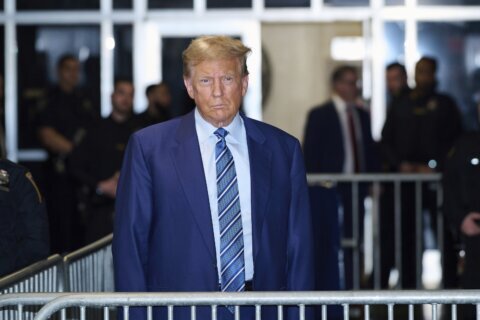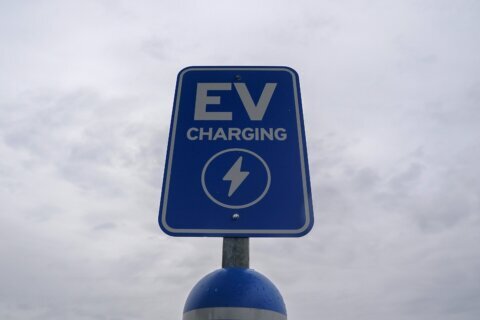UNITED NATIONS (AP) — The U.N. Security Council voted Monday to impose an expanded arms embargo on Yemen’s Houthi rebels, saying they have threatened the peace, security and stability of the war-torn country.
Council members said the rebels are responsible for attacking civilians, commercial shipping in the Red Sea, and Saudi Arabia and the United Arab Emirates.
The Security Council had already imposed an asset freeze, travel ban and arms embargo against Houthi leaders and top officials, but this resolution dramatically expands the arms embargo to include all Houthis.
The British-drafted resolution said the Iran-backed Houthis “implemented a policy of sexual violence and repression against politically active and professional women, engaged in the recruitment and use of children,” indiscriminately used land mines and improvised explosive devices and obstructed humanitarian aid to Yemenis.
Yemen has been convulsed by civil war since 2014, when the Houthis took control of the capital of Sanaa and much of the northern part of the country, forcing the government to flee to the south, then to Saudi Arabia.
A Saudi-led coalition entered the war in March 2015, backed by the U.S., to try to restore President Abed Rabbo Mansour Hadi to power. Despite a relentless air campaign and ground fighting, the war has deteriorated largely into a stalemate and spawned one of the world’s worst humanitarian crises. The U.S. has since suspended its direct involvement in the conflict.
Monday’s vote was 11-0, with Ireland, Norway, Brazil and Mexico abstaining amid concerns about the negative impact on the humanitarian situation in the Arab world’s poorest nation and the risk of undermining a fragile political process.
Peter Salisbury, the International Crisis Group’s senior analyst for Yemen, tweeted that Yemen has been “the site of some of the first post-Russia/Ukraine horse trading at the Security Council” since Russia’s invasion of its neighbor last week.
Russia voted in favor of the resolution after the UAE abstained on Friday’s vote in the Security Council on a resolution that would have condemned the Russian invasion of Ukraine, “in what was perceived at council as a quid pro quo,” Salisbury said.
UAE Ambassador Lana Nusseibeh welcomed the arms embargo on the Houthis, calling it a “terrorist group” responsible for “flagrant violations and heinous attacks.”
“This resolution will curtail the military capabilities of the Houthis and push toward stopping their escalation in Yemen and the region,” she said. “It will also prevent their hostile activities against civilian vessels and threats to shipping lines and international trade … (and) stop the suffering of Yemeni civilians and those affected in neighboring countries by their terrorist acts.”
Nusseibeh called on the Houthis to stop their cross-border attacks and return to serious political negotiations, stressing that there is no military solution to the war in Yemen.
Ireland’s deputy U.N. ambassador ,Jim Kelly, said his government abstained because it remains concerned that designating all Houthis “may result in unintended negative humanitarian and political consequences.” It is also concerned the resolution’s description of “terrorist attacks” by the Houthis “may have unintended negative consequences for the millions of Yemeni people living under Houthi control,” he said.
Since 2014, nine Yemenis have been added to the U.N. sanctions blacklist and the resolution extends the arms embargo, travel ban and asset freeze against them until Feb. 28, 2023.
The list includes Abdel-Malek al-Houthi, leader of the Houthi movement, and Yemen’s former president, Ali Abdullah Saleh, who reportedly died in December 2017. Last year’s additions included three senior Houthi rebels linked to cross-border attacks from Yemen into Saudi Arabia and the Houthi offensive in the central desert city of Marib.
The resolution calls on all countries “to increase efforts to combat the smuggling of weapons and components via land and sea routes, to ensure implementation of the targeted arms embargo.”
It “strongly condemns the cross-border attacks by the Houthi terrorist group, including attacks on Saudi Arabia and the United Arab Emirates striking civilians and civilian infrastructure, and demanding the immediate cessation of such attacks.”
U.N. envoys have been trying for several years to get the Houthis and the government to commit to a nationwide cease-fire and to reopen Sanaa airport to commercial traffic. They’ve also pushed them to ensure an uninterrupted flow of fuel and commodities through the main port of Hodeida and to resume a political process aimed at reaching a political settlement.
The resolution says there is no military solution to the current conflict and that the only viable path forward is “dialogue and reconciliation among the multiple and varied parties.”
It extends the mandate of the U.N. panel of experts monitoring implementation of the sanctions until March 28, 2023.
In their last report circulated on Jan. 29, the experts said nearly 2,000 children recruited by the Houthis died on the battlefield between January 2020 and May 2021, and the Iranian-backed rebels continue to hold camps and courses encouraging youngsters to fight.
Copyright © 2024 The Associated Press. All rights reserved. This material may not be published, broadcast, written or redistributed.







